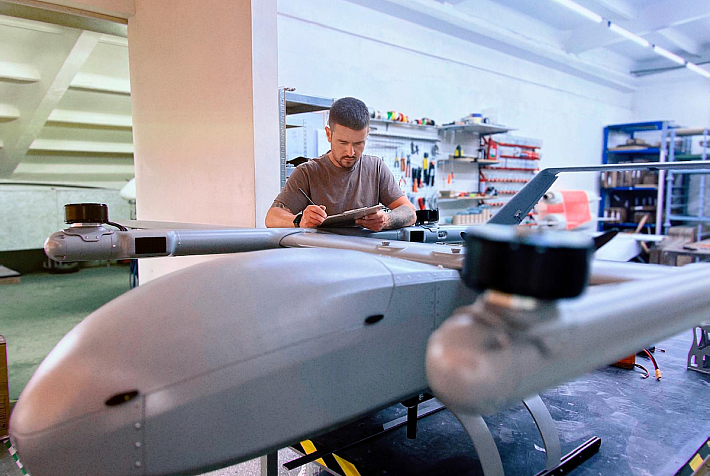Neil McGregor's view of the unrealistic Romania and his plan to bring in more tourists

A British lawyer talks about a country of unrealistic rules, and how he might fulfill his childhood dream in Romania while helping the country attract more foreign tourists.
Neil McGregor decided to move to Romania 19 years ago. He found a place which fostered some unrealistic rules. That's why - he believes - Romanians tend to break some of them.
Neil McGregor should know about respecting rules - he's a lawyer and runs the McGregor and Partners law firm as managing partner.
In his 19 years of Romania, he got to witness the country's changes, as well as the everlasting. Such as the low-speed limit, which Romanians don't usually respect, as the state of the road allows them to go faster. Or bureaucracy, which often leads to corruption.
“I’m used from my driving in the UK to drive at or just below the speed limit and on many occasions I had other cars behind me, queuing up or flashing their lights at me because they were going faster than I do and far more illegally than I do. My training, if you wish, is to respect what the law says and stick to it,” says Neil.
He does admit, however, that Romanian drivers might be right to go faster on good roads, but he'd be uncomfortable himself going above the speed limit.
It's all in the attitude in Romania. While not respecting rules might seem widespread, the Brit found that many Romanians do go by a rule: “Unless someone specifically says you can do something, that means you can’t.”
He is rather used to the outlook in the legal system where you can do whatever you like unless the law specifically says that you can’t. For many Romanians, it's almost the other way around, he believes.
Among the unrealistic demands in Romania, there's one which puzzles McGregor. The use of stamps - stampile. Stamps are important in Romania - all official documents must be stamped with the company's or the authority's stamp. In the UK,it proves nothing and can be bought from any shop that sells such items.
Then it's the criminal record, so much used - and required nowadays in Romania (the cazier juridic). “The joke we have is that if you are British and you need a criminal record, the way to take one is to take with you a toothbrush, a change of underwear and a brick and go down to the local police station, throw the brick through the police station window. The police will then organize for you to get a criminal record. Criminal record with us means the record of the crime you committed. So you will not get a certificate of no convictions,” says the lawyer.
The document the Romanian system requires is, in the UK, a certificate with the Police's information on the person. "Usually, hopefully, it comes back with nothing," Neil explains.
Romania's bureaucratic ways lead to corruption: if you have to get a particular stamp on a piece of paper, it’s very easy for the person holding the stamp to 'lose' it until you make an arrangement with him, says McGregor. Romania would do better if the authorities abolished some of the rules that really serve no purpose, he believes.
One would be the inability to register companies in shared spaces with other firms. Whereas for example in the UK, it’s common for a law firm to have a whole list of companies on its door.
"If your corporate seat expires in Romania, the Commercial Registry can dissolve the company. The UK position is that if you are crazy enough to say that your official correspondence address is somewhere where correspondence won’t reach you, if you nominate an open field as your corporate seat and so the post never gets to you, from the regulator or the government, it’s your problem,” he says.
A lawyer by trade, McGregor keeps an eye on what happens in the justice system, and how, for example, one becomes a judge. " In Romania, very bright people can go through the law faculty and then become judges in their 20s, with very little experience. Most of them are overworked and not very well paid," says Neil.
In other countries such as the UK, professional full-time judges are appointed from advocates. They are usually old people, with a lot of experience and often made their money at the bar. "So they are more mature, they know they have a reputation to defend, they don’t want to mess up their career by doing improper things on the bench, and they are financially secured," the lawyer explains. “So this makes it less likely for them to be open to bribery.”
It's not all bad, however. Despite all the shortcomings, Neil McGregor still finds Romania to be a democratic and stable place with very well-educated and hard-working people, with a gorgeous countryside and huge natural resources.
But he still fears that politicians’ way of changing laws overnight can drive investors away: these fast changes hurt business. Even here, however, things are starting to get better: no such quick changes were made this year.
Romania might also be the place where Neil sees one of his biggest dreams come true. As a kid, he wanted to be an engine driver. He is very passionate about railways and steam engines. He is the company secretary of a firm active in this field back in the UK.
He wants to restore one of Romania’s historic steam trains, mocanita, and make it run, for tourism purposes, between Sibiu and Agnita. This is a 40-km route, and the project might bring more tourists to Romania, particularly in this area.
“I once took the train from Agnita, the mocanita, into Sibiu. That indeed was an experience, to say the least,” McGregor says.
He already discussed his plans with the Romanian authorities and hopes it will be made possible soon.
Irina Popescu, irina.popescu@romania-insider.com












